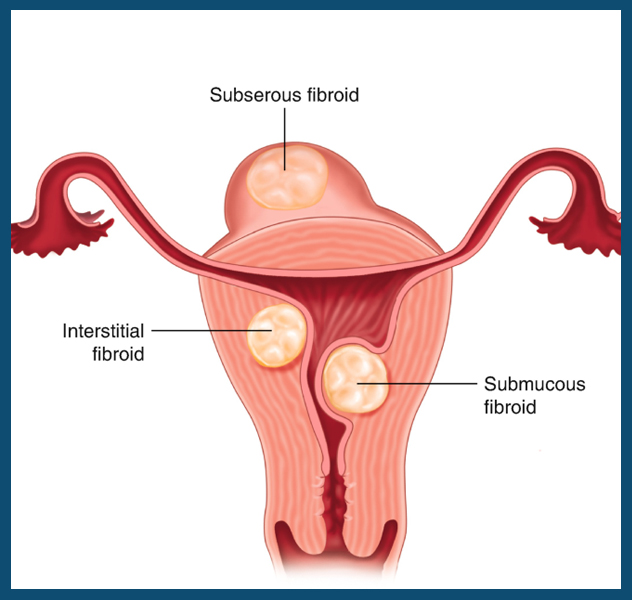

LEIOMYOMAS WITH PREGNANCY
INCIDENCE: The incidence of fibroid in pregnancy is about 1 in 1,000 and it depends on population characteristics.
EFFECTS ON PREGNANCY
It depends on their location.
1) May be none
2) Pressure symptoms
DUE TO IMPACTION
1) Bladder-retention of urine and
2) Rectum-constipation
3) Abortion
4) Malpresentation
5) Non-engagement of the presenting part
6) Preterm labor and prematurity;
7) Red degeneration
8) Placental abruption.
EFFECTS ON LABOR:
1) May be unaffected
2) Uterine inertia
3) Dystocia due to:
4) Obstructed labor.
5) Postpartum hemorrhage is due to atonicity or due to morbid adherent placenta
6) Difficult cesarean section.
EFFECTS ON PUERPERIUM:
1) Subinvolution
2) Sepsis is common when placenta is implanted over the myoma site which is a submucous or intramural type.
3) Secondary PPH
4) Inversion of uterus
5) Lochiometra and pyometra.
EFFECTS OF PREGNANCY ON FIBROID
1) Increases in size due to increased vascularity, edema and hypertrophy and hyperplasia of the fibromuscular tissues. The tumor feels soft.
2)changes in position
3)changes in shape- becomes flattened
4)degenerative changes, especially red degeneration
5)torsion of pedunculated subserous fibroid, and
6)infection and polypoidal changes are more in puerperium.
RED DEGENERATION: It predominantly occurs in a large fibroid during the second half of pregnancy or puerperium. The cause is not known but is actually a hemorrhagic infarction. Infection does not play any part.
Naked eye appearance of the tumor shows dark red areas with cut section revealing raw-beef appearance often containing cystic spaces. The odor is often fishy. The color is due to the presence of hemolyzed red cells and hemoglobin. Microscopically, evidences of necrosis are present. Vessels are thrombosed, but extravasation of blood is unlikely.
CLINICAL FEATURES:
1) Acute onset of focal pain over the tumor
2) Malaise or even rise of temperature
3) Dry or furred tongue
4) Rapid pulse
5) Constipation
6) Tenderness and rigidity over the tumor
7) Blood count shows leukocytosis. The diagnosis is confused with acute appendicitis or twisted ovarian tumor. The diagnosis is Often made only on laparotomy.
DIAGNOSIS: Clinically, it is difficult to diagnose a fibroid during pregnancy without fore knowledge of the existence. Marked softening and alteration in the shape (flattening) make it difficult to differentiate from the pregnant uterus. In an uncomplicated tumor, it is confused with ovarian tumor, retroverted gravid uterus, non-gravid half of a double uterus. In early months, fibroid is diagnosed but pregnancy is missed whereas in later months, pregnancy is diagnosed but the fibroid is missed. Sonography confirms the diagnosis with certainty. Color Doppler is helpful in some cases. MRI is more accurate for diagnosis and to know the dimensions, location and its relation to placental implantation.
HOMOEOPATHIC MEDICINES FOR LEIOMYOMAS IN PREGNANCY: -
1) Belladonna: - prescribed in cases where the uterine fibroids cause a lot of pain during periods. If the pain causes a cramping sensation in the abdominal region this medicine can be used.
2) Sepia: - greatly reduces the burning pain of uterine fibroids. Sepia also reduces the bearing down sensation and protects against recurrent vaginal and urinary tract infections.
3) Phosphorus: - another effective remedy for treatment of menstrual discomforts due to uterine fibroids. Helpful in cases where the woman has early and long lasting periods.
4) Pulsatilla: - Pulsatilla is beneficial in cases where women notice large and dark blood clots along with periods. It helps reduce the severe pain of menstruation and also reduces the pressure of large Uterine fibroids.